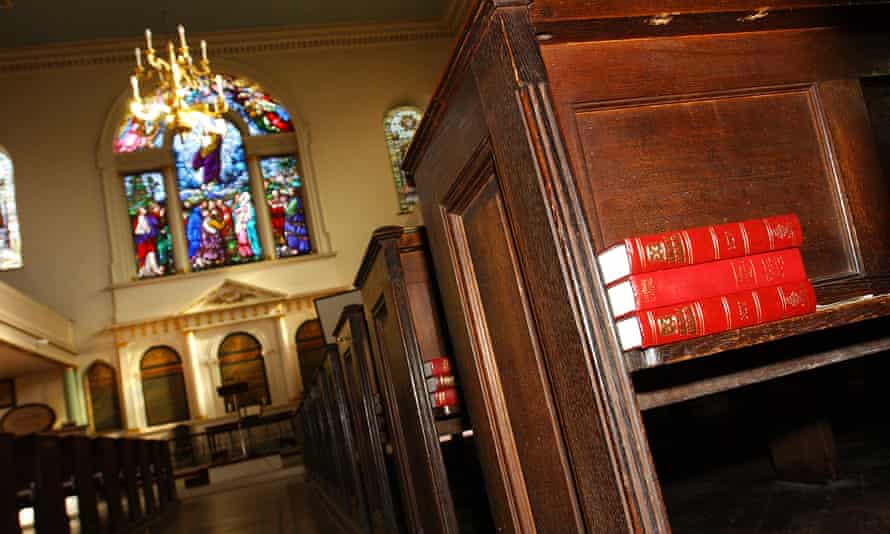Thank you for taking the time to follow this series. If you haven’t read my first article yet, please consider reading it before you move on. You can read it here: What Is Deconstruction?
Through this three-part series, I have sought to make sense of the so-called ‘deconstruction movement’. It’s no mean feat, my research has spanned three months and whilst I feel I have a reasonable grasp of some of the movements’ main features, this is no definitive article. My only hope is that this serves as a helpful resource for those considering deconstruction or wanting to engage with people who are.
What is our understanding of deconstruction?
The enduring thorn we have sought to address with the articles is how we understand deconstruction. Everything flows from this. What we consider the movement to be. It’s important we hold our working definition firmly in our minds as we consider whether deconstruction is dangerous.
Since the first lockdown and over the last year and a half, most of us can think of people who have walked away from Christianity entirely. In fact as of 2017, according to The Guardian, More than half the UK population [had] no religion. The study found that 53 per cent of the UK population now had no faith, meaning that for the first time in living memory, most of the country was not religious. I suspect the past two years and multiple lockdowns have not helped that. COVID-19 evoked more questions than it solved for many.

However, not everyone who doubts their faith ends up rejecting it. In fact, many evangelicals and young people are claiming that an in-depth review of their beliefs has strengthened their faith. It’s a story I’ve heard time and time again from friends, acquaintances and even the odd well-known church leader. Whilst COVID-19 has put stress on some people’s faith, for others, this period has been a very sobering one and a great opportunity for growth.
So is deconstruction dangerous?
In the first article, I expressed some hesitancy in adopting the term ‘deconstruction’ into the Christian lexicon and common use. I did this because I think there is already a term for Christians who believe primary Christian doctrines and are asking questions about secondary Christian issues. There is also a term for folks who do not believe in primary truths and are investigating central gospel claims to see if this is something they believe and want to build their life on. Deconstruction seems to create this middle ground, a certain no-ideological space where people can perpetually exist and not have to make any claims.
I explained that:
Orthodox Christianity has always been capacious enough for difficult questions. It’s what we thank the reformers for now. They asked difficult questions and found comfort in some answers. Questions are welcome but the Christian faith is built on some very important foundations.
These are what we may call primary issues, topics like the trinity, salvation by faith alone, Christ’s substitutionary atonement, the virgin birth, the sinlessness of Christ, Christ’s death, burial, resurrection, ascension and future bodily return, the authority of scripture. Christians can question these but must reach a resolution because this forms the foundation for their Christian walk. They cannot live in perpetual limbo on issues like this.
Things are different for secondary issues. If and when we levy pejorative attacks against other Christians or defame their character because they hold a different view, I believe we have climbed over the safety rail established by Scripture. Not only do we do injury to others, but we risk injury to ourselves. There is a warning of loss of rewards (Mt. 12:46). There are also fewer ministry opportunities after being rightly labelled a sour Christian who cannot “play well in the sandbox” with other Christians.
Whilst this is true of secondary issues, tampering with core issues is akin to playing faith Jenga with belief. If enough key pillars are pulled out, then the whole thing topples. This is what many people encounter after ‘deconstructing’. Asking questions as a Christian is one thing, joining a branded movement is another. In many ways, we shouldn’t be too shocked by the fruit from this.
To offer a pastoral note, my fear is that “theological deconstruction” is a slippery term. It’s a catch-all phrase that encompasses thousands of people’s spiritual journeys and so can never communicate the whole story. Anything I write about deconstruction can always be rebutted by someone saying, I don’t really understand the movement or I’m using the term incorrectly. This is exactly the problem. The term is a ghost and so impossible to address or really speak about.
I don’t believe it is appropriate for church leaders to endorse this term, but they can and should commit to creating environments where doubt isn’t a dirty word and where a person who has already crossed the line of faith and committed themselves to Christ can go to discuss difficult subjects. The internet is littered with the blogs of ex-Christians who never found answers to their questions. Surely the onus is on us to make sure our churches are places not only where non-Christians are welcome but also places for Christians who wrestle with doubt to find the answers they’re so desperately looking for.
Asking questions is arguably a sign that a person’s faith is growing, not stagnating. The answers that satisfied us as Christian teenagers may not sustain us as we enter mid-life. We need to think again, and the Bible’s instruction to love God “with all your mind” (Matthew 22:37), means we can’t bury our heads in the sand.
A note on maturing
So to tackle the question head-on, is deconstruction dangerous? Well if we are talking about growing in our faith through structured and intentional questioning, absolutely not. ‘Maturing’ as the bible calls it, is a natural process Christians are encouraged to go on. Throughout the bible, we are told about the merits of maturing and growing in our faith (1 Corinthians 14:20, 1 Corinthians 13:11, Ephesians 4:14-15, Ephesians 4:13, Hebrews 5:12-13, 2 Peter 3:18, Romans 5:3-4) and the bible doesn’t hold back in making its benefits clear. The process is not a simple or straightforward one. It involves doubt, responding to senseless tragedies or prayers that seem unanswered.
There are all types of growing or coming of age in your faith. I think this point is well made if we consider blogger and creator of the Poema podcast, James Prescott. He said in an online post that he was comfortable wearing the ‘evangelical’ label for many years, but that changed in the year 2000 when his mother passed away. He said “Suddenly the God I had known and grown up with was no longer big enough,” he says. “I had questions and doubts and nowhere to take them. The tragedy in this story is not that the death of his mother rocked his faith. I can empathise with that and I know many people who have gone through similar testing of their faith as a result of death. It’s hard, complicated and sorrowful. A greater tragedy was that he felt he had nowhere to take his doubts. That’s when we need the Christian community the most. When we go through these tough and difficult times.

Words like trials, temptations, refining, and testing occur more than 200 times in the Bible. I remember a portion of Purpose Driven Life that I read. It said:
“Character is both developed and revealed by tests, and all of life is a test. You are always being tested. God constantly watches your response to people, problems, success, conflict, illness, disappointment, and even the weather! He even watches the simplest actions such as when you open a door for others, when you pick up a piece of trash, or when you’re polite toward a clerk or waitress. We don’t know all the tests God will give you, but we can predict some of them, based on the Bible. You will be tested by major changes, delayed promises, impossible problems, unanswered prayers, undeserved criticism, and even senseless tragedies.”
This short portion captures so well how we are developed by the things we go through. Even though difficult times come to believers, we grow through what we go through. This kind of growth and maturing is actively encouraged in the Bible and nurtured by the Holy Spirit who promises to make His home with us (John 14:23).
It might look cool to be a wandering spiritual nomad forever, but I don’t think that gets you anywhere. Growth through doubt is the aim.
Beware of cultural pop
Deconstructionism is a curious idea. In an odd way, it takes the Babel story a stage further. Instead of the multiplicity of languages and the confusion it creates, we are left, as it were, with no language at all- either in which God could speak to us or in which we can address each other.
There is something to be said about the ‘latest’ evangelical movement, iconoclastic in nature and also kind of cool. This kind of movement is alluring, it feels like you are on the cutting edge of new thinking and new approaches. These aren’t just my speculations, these are some of the ways, ‘members’ of the movement have described it to me. It may not be the case that all who are part of this movement identity with this description, however, there is no denying, there is a sort of electricity surrounding deconstruction circles as they brand themselves as the next new thing.
Christians need to do better
Rather than allowing room for sincere doubt and questions, some Christian communities reject anything more than superficial curiosity. That may extend to carelessly labelling those with doubts as unbelievers or troublemakers. This lends weight to those who falsely claim that valid answers are only found outside the church. Faith communities may obsess over teachings that are secondary or even superficial. They may cement cultural and political preferences into their view of Christianity. Those errors also feed the false narrative driving much of the modern deconstruction movement.
It’s clear to me that some deconstruct in response to deeply personal pain and disappointment. I covered some of these reasons in the first article. Those who have been neglected, rejected, or even abused within a church context struggle to separate unbiblical traumas from legitimate teachings of Scripture. Failures and betrayals from Christian leaders create heartache and embarrassment. Pain felt by those we love becomes a pain in our own lives. Some respond to these struggles by jettisoning doctrines or beliefs; this is partly an attempt to distance themselves from the stigma of another person’s actions.
These are admittedly failures of the modern church and failures of Christians. However, these failures can and should be corrected. There will always be those whose connection to faith is superficial (Matthew 7:21). Others have understanding fragile enough to fail under strain (Hebrews 3:12). Jesus’ parable of the sower includes two groups who demonstrate a response to truth, only to be overcome by worldly pressure or persecution (Matthew 13:20–22). Paul knew people often succumb to attractive lies (2 Timothy 4:3–4). Paul witnessed close friends yielding to popular trends (2 Timothy 4:10). Even Christ saw people walk away because they did not want to accept His message (John 6:65–66).
In the last instalment of this series, we will consider the question, Should I Deconstruct in an interview with one of the writers here at Our God-Given Mission